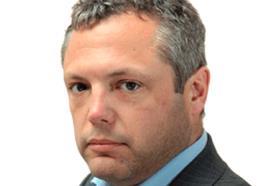Social mobility remains the Cinderella of the diversity and inclusion industry. I’m not sure that enabling an impeccably liberal cohort of female Establishment lawyers to join the Garrick – as proposed – is necessarily the epochal blow for equality that some believe. Wouldn’t that just be spreading the privilege around a bit? Presumably the club would remain exclusionary by definition, and on the basis of social class. Offer ‘mates’ rates’ to some women trade unionists from Hounslow, Garrick Club, and we’ll talk.

I begin with a digression only to contradict myself. For I think the Bar Council is right to oppose proposed training reforms that aim to increase access to that rarefied profession.
In a statement this week, the body declares its opposition to three out of four of the Bar Standards Board’s proposed changes, including the removal of the requirement for a minimum 2:2 degree as a gateway.
Bar chair Sam Townend KC believes the move would lower standards, which would appear to be self-evident. In fact, the assertion is contestable. A degree does not and should not necessarily circumscribe people’s life aspirations. We are not the sum total of the last exam we took. Some very bright people indeed do not get degrees, for a variety of reasons. Winston Churchill did not go to university at all, but his advocacy was mettlesome.
The principal objection is more prosaic. Removing the requirement invites yet more aspiring barristers to hurl thousands of pounds at expensive training courses when – by dint of their degree classification or lack of a degree – they have little chance of obtaining a pupillage.
In reality, the dial should perhaps be moving the other way. Would it be more realistic for a 2:1 to be the minimum? In 2022-23, 60% of pupillage offers made were to applicants with a first-class honours degree and 36.1% to those with an upper second. That leaves, at most, a couple of dozen people each year who bag pupillages without either. I’d like to know who they know, or whose children they are.
Of course, it may be the (arguably antiquated) pupillage system itself that is faulty, but that is a different debate. False hope is much worse – and a lot more expensive – than next to no hope at all. Nor, incidentally, is it the BSB’s job to plump the profits of training companies.































2 Readers' comments